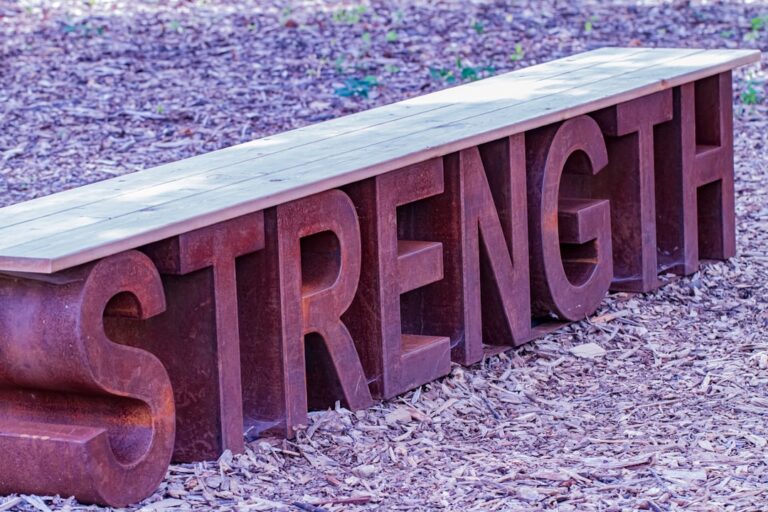
I used to drown in my problems.
It felt like I was stuck in a feedback loop of my own making. Binge eating led to feeling bad about myself which led to more binge eating. Laziness led to missed opportunities which made me feel hopeless and even more lazy. It was a heavy, suffocating cycle and for a long time I thought that was just how my life would be. I focused so much on what was wrong that I couldn’t see a way out.
The change didn’t happen overnight. It was a slow, deliberate shift in how I saw my challenges. I learned to stop staring at the wall in front of me and start looking for the door. This is a solution-focused mindset. It’s not about pretending problems don’t exist. It’s about training your brain to look for answers instead of dwelling on the issues.
It’s a skill you can build one day at a time. Here are 12 ways that helped me do it.
1. Ask “What’s Next?”
When something goes wrong our first instinct is often to ask “Why me?” or “How did this happen?” While understanding the past can be useful staying there keeps you stuck. Instead try asking a more powerful question: “Okay this is the situation. What’s the next right thing to do?” This simple switch moves you from being a victim of your circumstances to an active participant in your life.
2. Define the Real Problem
You can’t solve a problem you don’t understand. Vague feelings like “I’m unhappy” or “I’m stuck” are impossible to act on. Get specific. Is it your job? Your health? Your relationships? Try to narrow it down. “I’m unhappy” becomes “I have no energy because I eat poorly and don’t move my body.” Now you have a specific problem you can start to solve.
3. Look for What’s Already Working
Even on the worst days something is going right. Maybe you got out of bed. Maybe you drank a glass of water. Maybe you were kind to the cashier at the grocery store. Find that small positive thing. A solution-focused mindset looks for existing strengths and builds on them. What’s the one thing that isn’t a complete mess? Start there.
4. Break It Down into Tiny Pieces
Big goals are paralyzing. When I first decided to get healthy the thought of losing over 110 pounds was crushing. It felt completely impossible. So I didn't focus on that. I focused on a single day. My goal wasn't to lose 110 pounds. It was to eat one healthy meal. To go for one walk. To drink enough water today. By breaking the massive problem into tiny manageable steps I made progress without feeling overwhelmed.
5. Celebrate the Smallest Wins
This goes hand in hand with breaking things down. When you accomplish one of those tiny steps celebrate it. Acknowledge it. Feel good about it. When I chose a healthy meal over junk food that was a win. When I went for a walk instead of sitting on the couch that was a win. These small victories build momentum. They prove to you that you can do it and they give you the fuel to take the next small step.
6. Ask Better Questions
Your brain is a search engine. The questions you ask it determine the answers you get.
-
Instead of: “Why can’t I ever stick to a routine?”
-
Ask: “What’s one thing I can do for 15 minutes tomorrow morning to start my day well?”
-
Instead of: “Why is this so hard?”
-
Ask: “What would make this just 1% easier?”
Better questions lead to better more actionable answers.
7. Focus on What You Can Control
You can’t control the economy the weather or what other people think. Wasting energy on things outside your control is a recipe for frustration. Make a list. What about this situation can you directly influence? Your attitude your actions your choices your effort. Pour all your energy into those things. Let the rest go.
8. Practice Daily Gratitude
This was a game-changer for me. When I was stuck in my bad habits my mind was constantly focused on what I didn’t have. Shifting to gratitude rewired my perspective. Every day I make a point to thank God for my blessings big and small. A roof over my head a supportive family a body that is getting stronger. Gratitude doesn’t erase your problems but it puts them in perspective. It reminds you of the good that already exists in your life.
9. Reframe Your “Failures”
There is no failure only feedback. When you try something and it doesn’t work you haven’t failed. You’ve just learned one way that doesn’t work. Instead of beating yourself up ask: “What did I learn from this? What can I do differently next time?” Every setback is a lesson that can make you stronger and smarter for the next attempt.
10. Find Your Deeper “Why”
It’s hard to stay motivated if you don’t know why you’re doing something. My journey to a healthier life wasn’t just about numbers on a scale. It was about honoring the body God gave me. It was about having the energy to serve others and fulfill my purpose. My faith became my anchor. When the work felt hard my “why” kept me going. What is your deeper reason for wanting to change? Connect your daily actions to that purpose.
11. Put a Limit on Complaining
Venting can feel good for a moment but constant complaining keeps you chained to the problem. It reinforces a victim mentality and drains your energy. Try this: give yourself five minutes to complain about a problem. Feel all the frustration. When the five minutes are up you have to switch to brainstorming solutions. No more complaining about that issue for the rest of the day.
12. Seek Wise Counsel
You don’t have to solve everything alone. Talk to a trusted friend a family member or a spiritual mentor. But don’t just go to them to vent. Go with the intention of finding a solution. Ask them for their perspective. "I'm facing this challenge. Have you ever dealt with something similar? What helped you?" Other people can often see solutions that we’re too close to the problem to notice.
Building a solution-focused mindset is a practice not a perfect science. I still have days where I get stuck focusing on the problem. We all do. The difference is that now I have the tools to pull myself out. I know that my focus is my choice.
So what about you? What’s one small step you can take today to shift your focus from a problem to a solution?





